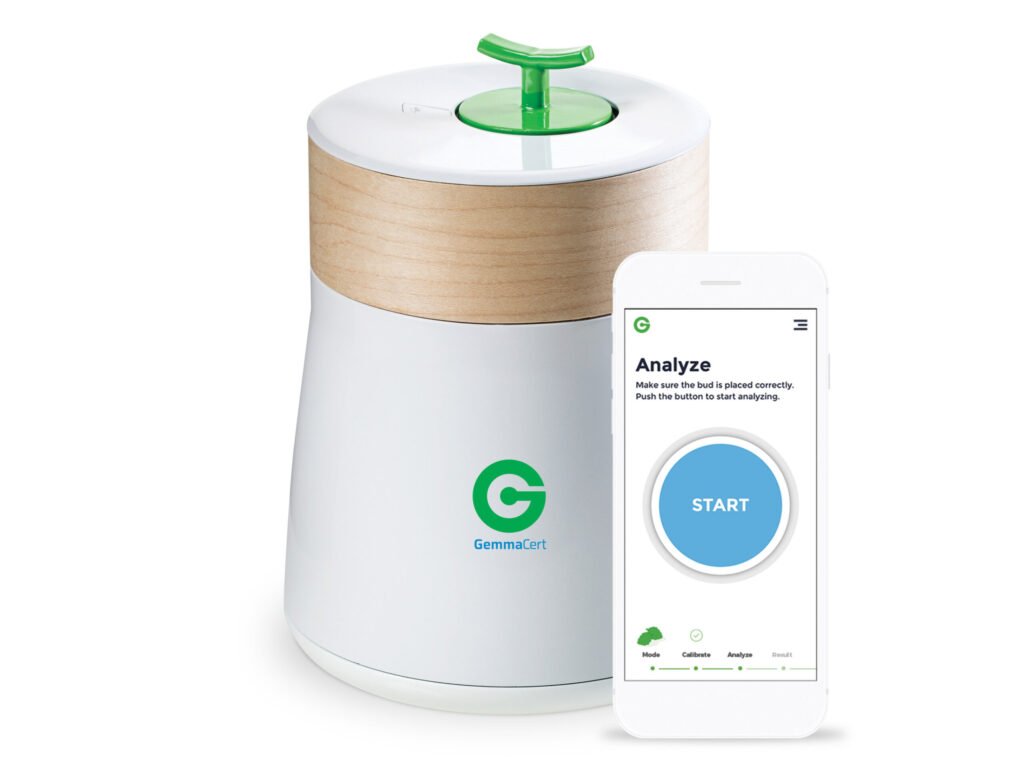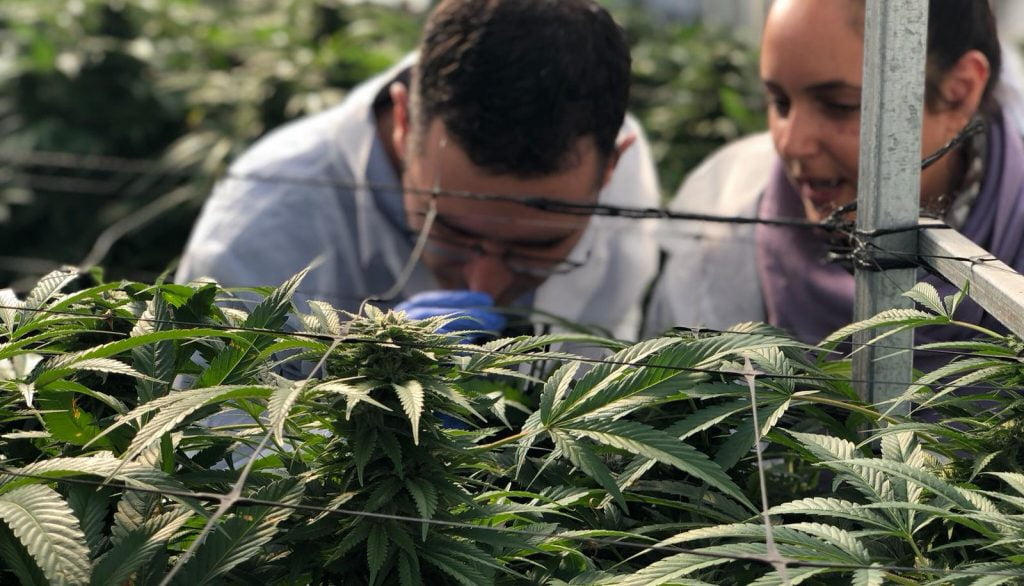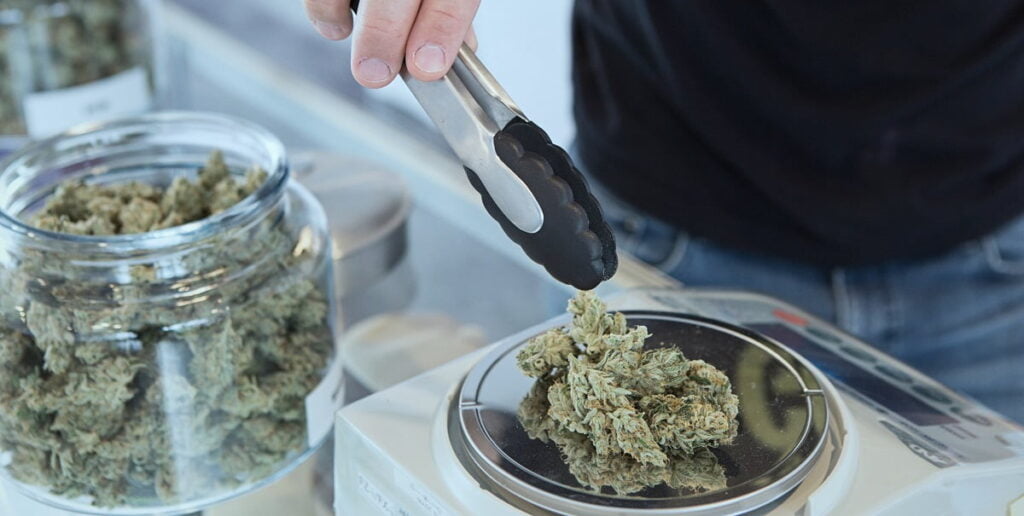Do you know what’s in your cannabis? A new industry report suggests that demand for high-quality cannabis is expected to jump significantly due to shifting opinions, increased moves towards legalization and decriminalization globally, and new market opportunities in the recreational and medical sectors.
According to a Frost & Sullivan report released last month, the global market for legal cannabis is estimated at about $15-17 billion currently and is projected to reach some $100 billion by 2025. Amid the increasing demand and the rising number of global ventures in the industry, there are also strict regulations, which vary by country, for the proper labeling of tetrahydrocannabinol (THC) and cannabidiol (CBD) values to ensure the therapeutic benefits and safety of cannabis for medical uses. THC is the principal psychoactive constituent of cannabis, while CBD is an active essential component derived from the hemp plant.
To this end, the cannabis testing market is projected to rise from $926 million in 2017 to $1.5-2 billion by 2025, according to the report.
Israeli cannabis tech startup GemmaCert is one of the few players in the testing field, having developed personal kits to test the active ingredients in cannabis. The devices, the GemmaCert and the GemmaCert Lite, analyze the total THC and CBD levels in a sample of cannabis, including levels in ground cannabis, dry flower buds, and CBD oil.

The GemmaCert is the company’s flagship product, at $4,000, and won the prestigious iF Design Award in the Medicine and Health category in Hamburg, Germany last year. The GemmaCert Lite, meanwhile, is intended for small cannabis businesses and grower operations and sells at a lower price point of $2,500.
SEE ALSO: Israeli Researchers Say Medical Cannabis Could Effectively Treat Some COVID-19 Symptoms
Both products allow for in-house analysis before formal and binding testing and can identify optimal harvest time. Results are obtained in approximately five minutes and communicated directly to the GemmaCert mobile app.
Last month, GemmaCert launched a new feature to determine the composition and potency of cannabis throughout the entire supply chain, from the initial plant harvest up through the raw extraction right before the cannabis is turned into a final product.
GemmaCert’s cannabis testing tools
To pinpoint the potency and composition, GemmaCert combines motion mechanics with three state-of-the-art technologies: Near Infrared Spectroscopy, a brain imaging technique that measures light absorbance to calculate blood-oxygen levels, image analysis, and machine learning.
GemmaCert’s products are currently operated in 30 countries worldwide, mainly by professional breeders, companies, and researchers.

“Basically around the world, our particular focus is cannabis quality, which obviously has many uses, and by improving the quality of the product itself, we contribute to the health and well-being of the individuals and communities which are using it and depending on it,” Dr. Guy Setton, co-founder and CEO of GemmaCert, tells NoCamels.
“With natural products, such as herbal medications and specifically cannabis, no two flowers are the same,” Setton explains. “There are hundreds of active ingredients in cannabis, and they’re not necessarily all present in the same levels, if at all, in each flower.”
GemmaCert has one of the world’s largest reference databases of cannabis flower spectra with over 250,000 data points, which allows for quality control and product development based on thousands of flower samples. Advanced mathematical and statistical tools are used to conduct analysis of the samples.
“Bringing together these technologies is what enables us to address the specific challenges that cannabis presents when it comes to quality control,” Setton says.
Israel has been at the forefront of cannabis research since the 1960s when Professor Raphael Mechoulam at the Hebrew University of Jerusalem became the first researcher – in 1964 – to isolate and synthesize delta-9-tetrahydrocannabinol, or THC.
GemmaCert’s technology is based on research first conducted at the Hebrew University by Professor Oded Shoseyov. The company was founded in 2015 in Raanana by Yissum, the university’s technology transfer company.
Cannabis – risks and regulations
The cannabis industry has grown by leaps and bounds over the past decade. Both the recreational and medical sectors have witnessed significant changes – and progress – in recent years, with new ventures popping up globally. Cannabis has also become more accepted as a potentially effective treatment for some conditions.
There have also been important moves toward legalization and decriminalization globally. Medical use of cannabis is legal in most of Europe, for example, with partial decriminalization for recreational use. In the US, cannabis is legal medically and/or recreationally in 33 states (while still illegal on the federal level). Canada, South Africa, and Uruguay are among the few countries where cannabis is legal both for recreational and medical use.
In Israel, the government is working on a plan to advance a series of reforms to ease restrictions on the recreational and medical uses of cannabis. This comes months after it finally gave the official green light to launch medical cannabis exports, paving the way for the country to bring in an estimated $1 billion in revenue per year.
Sign up for our free weekly newsletter
SubscribeAs part of the reforms, the Israeli Health Ministry is expected to require Israeli cannabis companies to add a barcode or QR code to packaging, for doctors and patients to ensure potency before use.

According to Setton, as legalization spreads, it poses a serious challenge to the cannabis industry due to a lack of accuracy or confidence surrounding labels. Recently, Canada saw a significant class action lawsuit against major cannabis companies for $500 million over failing to properly label their products. Class action lawsuits against publicly traded marijuana businesses have also doubled from 2018 to 2019.
“There are significant discrepancies between what is presented on the product label and what actually is in the product, and that all comes down to the fact that you cannot put down a label based on one single analysis you conduct in a certified lab, no matter how good the equipment or the technicians are, simply because one sample doesn’t necessarily tell you anything about the rest of the batch which goes to market,” Setton tells NoCamels.
The Health Ministry’s expected regulation will help consumers understand what is in their product, he says.
Today, THC or CBD content levels are drastically different from what is advertised on products both in Israel and abroad, Dr. Setton explains. For the ministry’s recommendations to truly be effective, manufacturers will need a better understanding of what is in their product.

“It is very important from a product, physician, and consumer perspective to have better clarity on what is in the cannabis products,” he says, adding that GemmaCert’s unique solution for testing cannabis potency and generating QR codes for packaging, is set to advance product transparency and traceability worldwide.
Impacts on health and government sectors
GemmaCert’s technology has had profound impacts on the health and government sectors of the countries it services, the company says.
According to Setton, it currently takes around six months for a doctor to set up a patient suffering from chronic pain with the correct medical cannabis dose, and even once the doctor discovers the correct dosage, it becomes a challenge to make sure the patient receives that same dose each time.
This “start low, go slow” prescription often leaves patients in great pain, yet GemmaCert will soon embark on its first clinical trial in Tel Aviv to shorten this trial and error process to just a few weeks. By capturing the spectral fingerprint of medical cannabis, GemmaCert hopes to look for correlations between these spectral fingerprints and the effectiveness of treatment to improve treatment and reduce healthcare costs.
“If we know that a patient may be a male of a certain age, then we will have the insights from our research to say [that] someone from that age, suffering from this kind of specific health condition, should try a cannabis product with this dosage and this particular fingerprint or similar fingerprint, and that will enable the doctor to get the patient on the right product quicker,” Setton says.
GemmaCert’s technology can also be applied to criminal cases in areas where possession of certain levels of cannabis is illegal.
Late last year, an individual was stopped by the New York Police Department (NYPD) for transporting what officers thought was illegal cannabis under federal law, meaning that it contained more than 0.3-percent THC content. Although the individual pleaded that these findings were incorrect and that the product was in fact hemp for his CBD business, he was arrested and the product was seized. It took a few weeks for the NYPD to receive conclusive forensic lab results proving that the individual was correct all along. The individual then filed a $10 million lawsuit against the NYPD.
“Had NYPD had this $4,000 [home kit] device, the police officers could have tested the product in the field in real-time and realized that the product was legal, and there would be no basis for seizing it or arresting the individual,” Setton says.“Police officers could determine on-the-spot if the substance analyzed is below the permissible THC level,” Setton said shortly after the incident.
A safer future for the cannabis industry
This month, GemmaCert is focused on the expected launch of its first pilot into the German pharmacy channel, which includes over 19,000 pharmacies that need to test cannabis on the spot.
SEE ALSO: Israeli Researchers Tout ‘1st Clinical Evidence’ That Controlled Doses Of Cannabis Relieve Pain
While entering this new sector, GemmaCert will also be adding new analytical capabilities to its technology for more efficient testing. Many of GemmaCert’s current capabilities can be accessed via the GemmaCert Academy, an online platform that offers professional papers on cannabis and hemp analysis, training on GemmaCert devices, and talks on cannabis analytics.
As GemmaCert’s devices are all operated and supported for the cloud, GemmaCert also hopes to enable the connection and communication between users worldwide to create the first global cannabis market.
According to Setton, when a customer runs an analysis, they will be able, for the first time, to compare their results to the average and highest results in the community as a whole.
Related posts

Editors’ & Readers’ Choice: 10 Favorite NoCamels Articles

Forward Facing: What Does The Future Hold For Israeli High-Tech?

Impact Innovation: Israeli Startups That Could Shape Our Future




Facebook comments